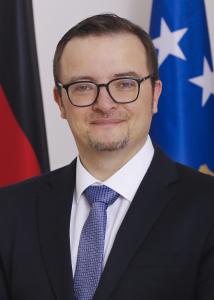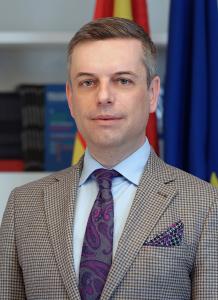Journalists and the media should insist on cooperating with educational institutions and young people from certain communities, given that society as a whole can benefit from such an approach. Not only is there a need to support young journalists in those communities to report on the stories and problems that they are faced with, but it is also a good opportunity to provide young people with the task to work on topics that will promote dialogue and awareness of diversity worldwide. Today's young people, like no other generation, have the opportunity to discuss their texts, to interact and value the opinion of others and to exchange ideas with their peers around the world. The involvement of young people in the production of media is one thing, but the greatest opportunity to foster change by means of journalism today is the global network. It is now that the next generation of citizens of the world should be trained to have the skills, understanding and courage to solve the global problems of their time.
The advantage of the journalistic profession in general is exactly the freedom and openness for anyone who has the desire and opportunity to try to become a journalist. Meanwhile, the possibility to exert influence in order to improve society and citizens' lives is one of the reasons for starting a career in journalism.
For the needs of this publication, interviews with professors and employees of the three faculties of journalism at state universities (Skopje, Shtip and Tetovo) were conducted. In addition, a questionnaire with eight semi-open type questions was answered by 26 young journalists and analysed in March 2021.
Over the past fifteen years, hundreds of journalists from the region have attended training programmes organised by BIRN (Balkan Investigative Reporting Network), and many of them are now editors and journalists working for leading newspapers, TV channels or internet portals, some of whom have received prestigious awards and accolades. The Balkan Fellowship for Journalistic Excellence, a programme initiated in 2007 for ten journalists from the region per year to work on in-depth analyses and research, includes a detailed one-week training, usually held in Berlin and Vienna. Before the pandemic outburst, the programme provided significant financial and editorial support for preparing one story over several months. Many participants say that it is difficult to choose one element of the programme that they would single out as the best: the possibility to travel, meet, socialise and exchange experiences with colleagues from the region, to visit newsrooms in other countries, or to establish contacts with various journalists and create a network of contacts in the region and Europe, including long-standing friendships. For societies with little interest and even less knowledge of what is happening across country borders, this type of programme offers the perfect opportunity to develop.
It is especially important for young journalists to study the so-called old school of ethics and standards, and for formal and informal educational organisations to empower young people to write effectively and with integrity, and to allow the stories that they share with the world to have comprehensive coverage. Only appropriately trained and initiative journalists can play the role of guardians of the truth and represent the actual eyes of the citizens at a time when many of them are apathetic.
In North Macedonia, the young editors and journalists who were engaged in the Organized Crime and Corruption Reporting Project during the last decade, focusing on acquiring analytical and critical skills for detecting crime and corruption, are now training a new generation of media workers who should contribute to the global fight against corruption and crime, the greatest threats to democracy. Their trainings take place in a small newsroom in Skopje without formal programmes, but by means of practical work and the encouragement of courageous journalism. In this publication, their experience is presented as a unique concept that unites the experience of young editors and investigative journalists who have been trained and have worked in the region and beyond on the same topics as their peers worldwide. Today, the local centre of the Research Reporting Laboratory trains new young professionals at the initial stages of their careers to be globally competitive and critical, as well as to understand the power of media and set future standards alongside their peers around the world.
One of the conclusions of the publication at hand is that young journalists play an important role in the media industry, and therefore, media should implement mechanisms to attract and motivate young people to work with them. On-the-job education and the opportunity to take part in external trainings organised by civil society organisations and media unions is of particular importance for the professional development of young media workers.
Given that journalism is facing a shortage of young staff, the management must think about how to encourage professional young journalists to continue to be active in their media. Meanwhile, universities must follow modern professional trends and implement attractive curricula that will in turn attract new students of journalism. This will help young critical journalists to continue to be professional, as they need to promote and protect the public interest.




